- Author Adrian Jeff jeff@psychologosportal.com.
- Public 2023-12-17 05:06.
- Last modified 2025-01-24 14:09.
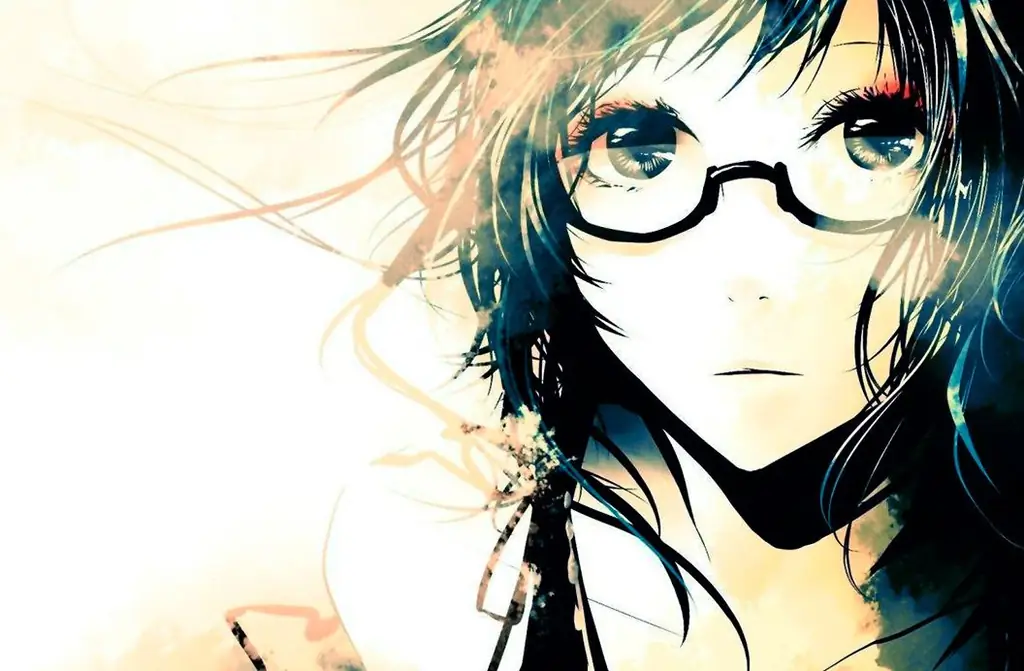
Anime and teen - from hobby to problem
The child is only interested in this, all communication is reduced exclusively to the plot and heroes of his favorite series, all other topics are not supported by a teenager, they cause irritation, boredom or even aggression. What is the reason for some teenagers' interest in anime? How can you help your child cope with a situation when the problem already exists?
Anime - Japanese cartoons with a characteristic recognizable style. They were filmed based on comic book plots, classic literary works or their own script.
The attention of teenagers is attracted by a more “adult” plot of anime, in comparison with ordinary cartoons. It can be the topic of relationships, love, space, superheroes, fantasy, philosophy with parallel worlds and supernatural abilities of characters.
Filmed in the format of anime series, they intrigue and make you watch episode after episode, season after season.
By getting carried away too much, a teenager can spend all his free time on them. Sometimes the child begins to copy characters, their clothes, appearance, manner of speaking. Anime lovers unite in fan clubs, play online games, create whole movements of the anime space.
When all this is only part of a teenager's life, parents do not attach much importance to it. But there are times when the hobby for anime begins to take more and more time, and this happens to the detriment of the school, the once-beloved circles, communication with peers and relatives.
The child is only interested in this, all communication is reduced exclusively to the plot and heroes of his favorite series, all other topics are not supported by a teenager, they cause irritation, boredom or even aggression.
What is the reason for some teenagers' interest in anime?
How can you help your child cope with a situation when the problem already exists?
How justified are the “preventive” measures of a total ban on anime?
Everyone is watching, but only a few are carried away. What kind of children go headlong into anime?
All children love cartoons. Only one child can be easily distracted from what is happening on the screen, while the other looks as if the world around him does not exist, hears nothing and does not see, and if turned off, expresses a violent protest.
This is how a teenager with a sound vector can move headlong into a parallel reality. The peculiarities of his psyche are such that he can deeply focus on what arouses his interest. His desires, in one way or another, are aimed at finding the meaning of his life, so he is close and interested in the themes of science fiction and philosophy, the discovery of new abilities or new galaxies in the Universe. Questions of the material world do not cause such a response in the soundtrack, since they do not give answers to his unconscious inner question - why am I here?
Artificially created reality, fictional worlds, ideal heroes, exciting anime stories - it's interesting there, it's good there, they entertain, surprise, amuse, scare, look for answers with you and find them. Such passive entertainment becomes a substitute for real life in sound adolescents. Because it does not require efforts from themselves. In contrast to reality, which is just at puberty, when the psyche is being rebuilt to an adult regime, begins to require more efforts from them than before.
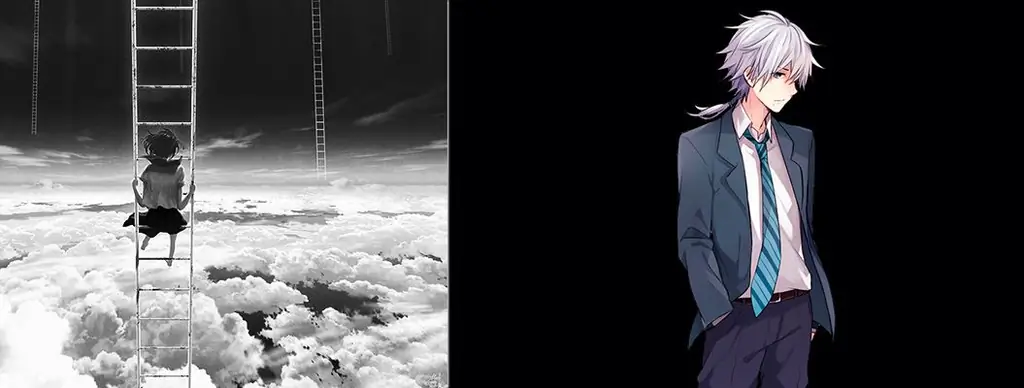
Following sound friends, adolescents with a visual vector who lack emotional ties with people around them in real life can also get carried away by anime. They are just going to the anime world to “get” emotional connections, live “adult” feelings, see vivid, expressive plot pictures as opposed to gray reality, laugh, cry, rejoice, get scared and win together with anime characters.
Puberty. When parents are already few, but oneself is still not enough
This is a difficult period in the life of every person. The transition from childhood to adulthood. Psychological development is coming to an end, and this is being replaced by a new stage - the realization of those properties that developed in childhood. The process of realization, implementation, application in practice of the innate properties of the psyche will continue throughout subsequent adult life, and this will happen at the level to which the properties managed to develop at the end of puberty.
A teenager has a desire to make independent decisions, to arrange his own life, to take responsibility for his future. And he tries to do it, tries to realize himself. But it does not always work out the first time, because the possibilities and resources are still not enough. And the teenager loses his footing.
He does not feel the familiar and habitual feeling of security and safety, which he always received from his mother, or does not feel it in full, as there is a separation from his parents. At the same time, he is not yet able to provide this feeling of himself on his own, the skill is not yet stable. The teenager gets stressed.
The unrealized properties of the psyche remind of themselves, causing poor health. And not all adults manage to fully realize the properties of the sound vector, what can we say about adolescents?
It's not good in anime, it's really bad for me
Without understanding his own psyche, the child lives with sensations, goes on about them, not realizing where. It is difficult for any teenager to become an adult, but sound people are the first to choose to escape reality. A reality that brings suffering is painful and cannot satisfy their needs.
Anime becomes a kind of escape from pain. Leaving headlong into a fictional world, the sound engineer seeks to replace reality. He begins to live in a world where he feels good, easy and interesting, neglecting the real world of living people.
If the sound engineer is trying to get away from pain, then the visual teenager can immerse himself in fantasies. He finds in anime the beauty that he lacks in life. The beauty of relationships, the depth of feelings, an exciting plot, the external style of the characters, emotional adventures.
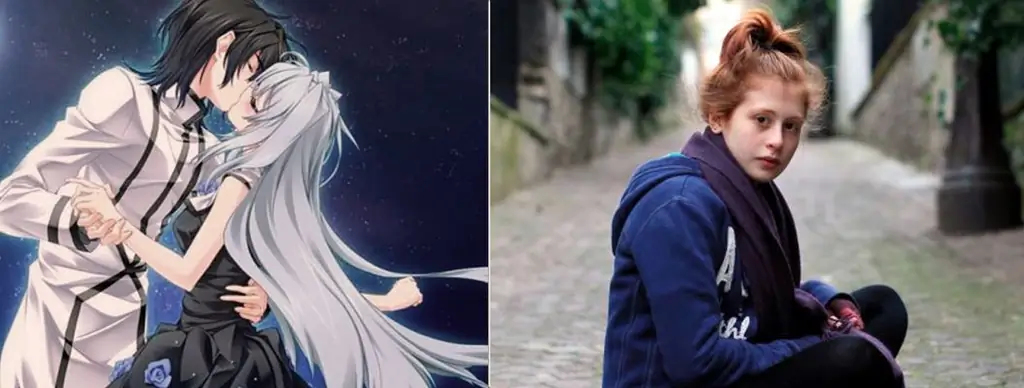
The further and deeper the teenager plunges into virtual reality, the stronger the desires of the psyche inherent in him by nature require them to be realized.
The surrounding reality, real life, in contrast to anime, involves the application of effort, active actions, physical or mental stress.
In other words, in order to get something, you have to do something.
Therefore, routine duties are annoying: homework, homework, cleaning, ordering the room, family celebrations, household chores, even self-care efforts. All this seems to the child so mundane, boring, stupid and meaningless that there is no desire to do it.
Hypertrophied hobby for anime is a signal that a teenager does not know how to live. He does not understand himself, does not feel understanding and acceptance by adults, does not have a direction for moving through life, does not know how to receive joy from communicating with peers, does not know where to direct his abilities in order to get a result that is meaningful for himself and others, which means and satisfaction.
Yes, he needs help.
What to do? Understand the reasons
The knowledge about the psyche, which parents receive at the training of Yuri Burlan System-Vector Psychology, forms new thinking. The look at your child radically changes, all his "oddities", whims and protests become obvious and observable.
The reasons why the teenager “sits in the anime”, what he is trying to get in the fictional world, are indicated. What he really wants and what he is so desperately looking for in virtual reality.
Understanding his needs, desires, values and priorities, you no longer push him away with your misunderstanding and eternal questions, "Well, what did you find there ?!" Now you know it yourself even better than he.
This means you no longer broadcast your frustration or frustration to your teen. You understand what he really is. This changes everything in your relationship. Trust grows, productive communication arises, contact with the child is established.
It is the sound specialists who more often than others pronounce their problem with the words “no one understands me”, visual children express this with the phrase “no one loves me” or “no one needs me”.
Therefore, when this desired understanding and acceptance comes, the feeling of hostility from the real world recedes. The teenager gets a ray of hope that he also has a place in the surrounding reality, that he also has a chance to find his meaning, his happiness in this life. Reality takes on shades of attraction. And it feels more vivid than in the fictional world of anime.
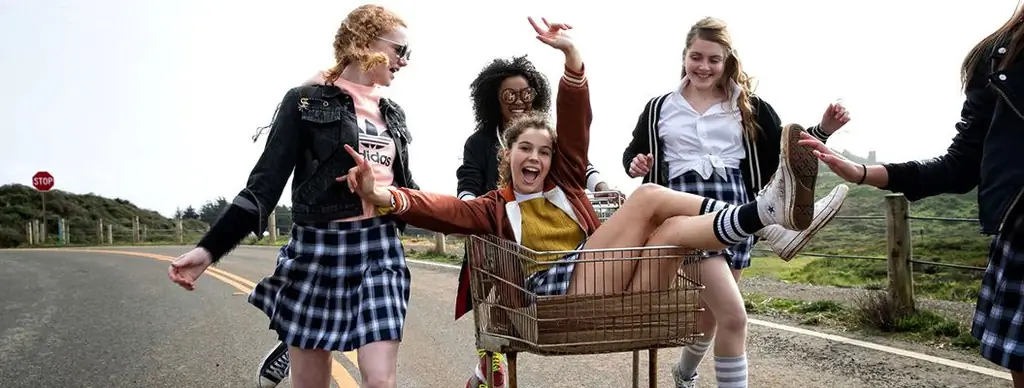
When the misunderstanding on the part of the parents goes away, the child gets the opportunity to “get” from the mother a sense of protection and security, and his condition is leveled. At least partially. Yet he is still not quite an adult and subconsciously still strives to feel completely safe under his mother's wing, as he did in childhood. He is especially acutely in need of this when being an adult fails, when attempts to realize himself have not been crowned with success, and the desire has not disappeared anywhere.
It is the balanced internal state of the mother that gives him such an opportunity - to get a subconscious feeling of security and safety.
How to turn the anime world in favor of a child
When contact with the child is already established, you get the opportunity to influence the viewing of his favorite anime.
Then you can choose deep, semantic, emotional cartoons together, without eroticism, violence, cruelty. Not to prohibit, but to regulate. Together with the child, determine the viewing time or amount. As a reward or rest.
You can contribute to its development: offer to draw characters in a sketchbook, try to make anime yourself using a virtual constructor, write fan fiction based on your favorite plot, watch with titles and learn the language, take an interest in Japanese culture, philosophy, and literature. Not to devalue his hobby, but to develop, expand his capabilities with the help of an anime tool.
Being with the child on the same wavelength, understanding his interests, desires and needs, it is important to support him and direct him towards active interaction with the people around him. It is this direction that will set the necessary guidelines for the full realization of a teenager in the future.
The active interest of the parents will help to include the child in communication with peers. Productive joint activity - only this will bring the sonic teenager more pleasure than virtual passive consumption of entertainment, return interest to real life, and show the prospect of the efforts invested.
You can create a local fan club for anime lovers, all together create a website or a wall newspaper, collectively design posters and print them in printing, sew costumes and stage a play based on anime, stage a dance and perform with it in a competition, write fanfiction and publish them on queues in the general blog, remove the filler ourselves and post it on the fan club's YouTube channel.
There are a lot of opportunities, the main thing in all this is joint creativity, interaction, communication, focus on people, the ability and desire to fit into the real world.
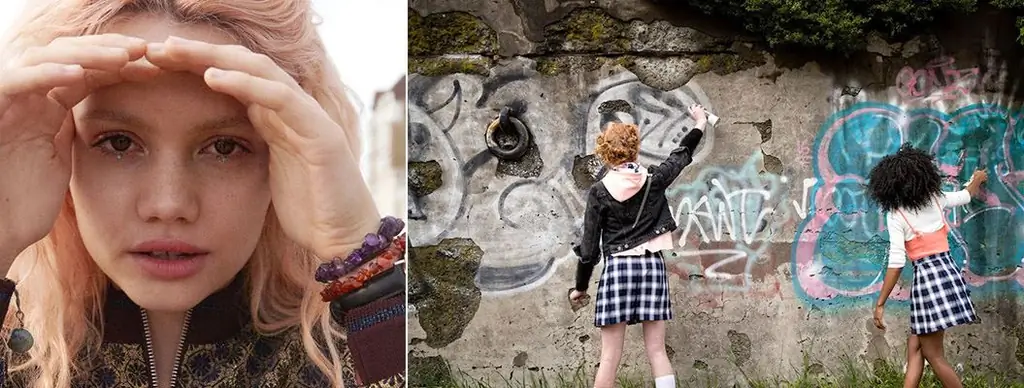
By showing different options for the implementation of the properties of sound and visual vectors, more laborious, but at the same time carrying more satisfaction, you will make sure that the child chooses more complex ones. The new generation carries the desire for more volume. They are more interested in the higher level implementation. One has only to show the entire spectrum.
The world of anime may be close to the interests of a teenager with sound and visual vectors. There is no danger or harm to the child in this. The main thing is that he does not become the refuge in which the teenager will hide from the real world. The high psychological literacy of the parents of modern children comes to the fore in matters of child development, especially during the difficult period of puberty.
Your child's hobby for anime suggests that he is close to the world of serious relationships, great feats, exciting adventures, that he is capable of strong deeds. And it is in your power today to show the difference between the short and fleeting pleasure of immersing yourself in the fictional reality of anime and the truly powerful pleasure from real life.






